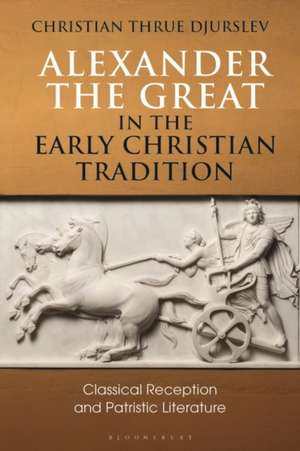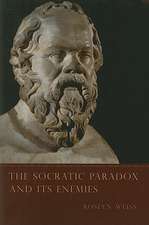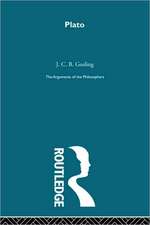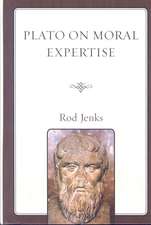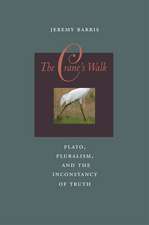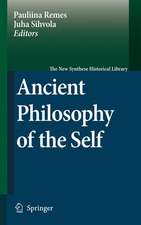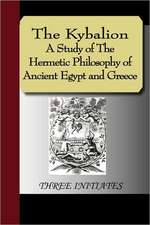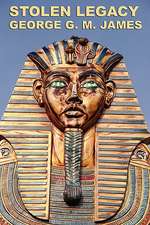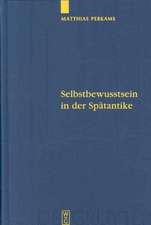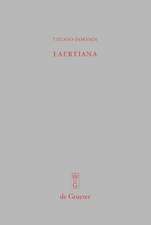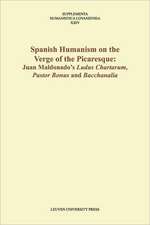Alexander the Great in the Early Christian Tradition: Classical Reception and Patristic Literature: Bloomsbury Studies in Classical Reception
Autor Dr Christian Thrue Djursleven Limba Engleză Paperback – 16 iun 2021
| Toate formatele și edițiile | Preț | Express |
|---|---|---|
| Paperback (1) | 217.62 lei 6-8 săpt. | |
| Bloomsbury Publishing – 16 iun 2021 | 217.62 lei 6-8 săpt. | |
| Hardback (1) | 656.81 lei 6-8 săpt. | |
| Bloomsbury Publishing – 11 dec 2019 | 656.81 lei 6-8 săpt. |
Din seria Bloomsbury Studies in Classical Reception
-
 Preț: 90.70 lei
Preț: 90.70 lei - 14%
 Preț: 180.44 lei
Preț: 180.44 lei - 30%
 Preț: 598.52 lei
Preț: 598.52 lei - 11%
 Preț: 218.91 lei
Preț: 218.91 lei -
 Preț: 90.37 lei
Preț: 90.37 lei - 22%
 Preț: 225.77 lei
Preț: 225.77 lei - 11%
 Preț: 220.75 lei
Preț: 220.75 lei - 30%
 Preț: 540.31 lei
Preț: 540.31 lei - 22%
 Preț: 224.94 lei
Preț: 224.94 lei - 22%
 Preț: 237.75 lei
Preț: 237.75 lei - 30%
 Preț: 597.63 lei
Preț: 597.63 lei - 22%
 Preț: 224.03 lei
Preț: 224.03 lei - 21%
 Preț: 218.74 lei
Preț: 218.74 lei - 21%
 Preț: 218.65 lei
Preț: 218.65 lei - 22%
 Preț: 225.96 lei
Preț: 225.96 lei - 21%
 Preț: 218.47 lei
Preț: 218.47 lei - 30%
 Preț: 569.76 lei
Preț: 569.76 lei - 23%
 Preț: 185.19 lei
Preț: 185.19 lei - 20%
 Preț: 219.57 lei
Preț: 219.57 lei - 30%
 Preț: 541.85 lei
Preț: 541.85 lei - 18%
 Preț: 166.36 lei
Preț: 166.36 lei - 30%
 Preț: 569.60 lei
Preț: 569.60 lei - 23%
 Preț: 254.55 lei
Preț: 254.55 lei - 30%
 Preț: 599.41 lei
Preț: 599.41 lei - 22%
 Preț: 261.08 lei
Preț: 261.08 lei - 22%
 Preț: 260.16 lei
Preț: 260.16 lei - 30%
 Preț: 598.02 lei
Preț: 598.02 lei - 30%
 Preț: 569.70 lei
Preț: 569.70 lei - 21%
 Preț: 218.65 lei
Preț: 218.65 lei - 30%
 Preț: 568.22 lei
Preț: 568.22 lei - 22%
 Preț: 772.98 lei
Preț: 772.98 lei
Preț: 217.62 lei
Preț vechi: 274.89 lei
-21% Nou
Puncte Express: 326
Preț estimativ în valută:
41.64€ • 43.63$ • 34.42£
41.64€ • 43.63$ • 34.42£
Carte tipărită la comandă
Livrare economică 11-25 aprilie
Preluare comenzi: 021 569.72.76
Specificații
ISBN-13: 9781350194465
ISBN-10: 1350194468
Pagini: 240
Dimensiuni: 156 x 234 x 17 mm
Greutate: 0.35 kg
Editura: Bloomsbury Publishing
Colecția Bloomsbury Academic
Seria Bloomsbury Studies in Classical Reception
Locul publicării:London, United Kingdom
ISBN-10: 1350194468
Pagini: 240
Dimensiuni: 156 x 234 x 17 mm
Greutate: 0.35 kg
Editura: Bloomsbury Publishing
Colecția Bloomsbury Academic
Seria Bloomsbury Studies in Classical Reception
Locul publicării:London, United Kingdom
Caracteristici
First study ever to chart the influence of a key cultural figure - Alexander the Great - on the earliest moments of the Church and the Christian influence on his reception
Notă biografică
Christian Thrue Djurslev is Assistant Professor of Classics at Aarhus University, Denmark. He has published widely on the reception of Alexander the Great in ancient and modern culture.
Cuprins
Acknowledgements Conventions and AbbreviationsIntroductionChapter 1: Apologists and Co.Chapter 2: Classical Themes and Christian TraditionChapter 3: Tales from Judea and the DiasporaChapter 4: History and RhetoricConclusionEpilogue: Writing Alexander, Writing ConstantineReferencesIndex
Recenzii
Djurslev's book is a useful contribution towards scholarship on the reception of Alexander. It should be a helpful reference and starting point for future work in this area. The occasional references to Coptic and Syriac works may even help inspire more research on Alexander's reception in these languages. Djurslev convincingly shows that there is much to be gained by casting a wider net in studies of the reception of Alexander.
The survey is clearly structured, thorough, and well argued. It contains a great deal of fascinating details (such as on Tatian's criticism of Aristotle's teaching: p. 44). The language is fresh and modern. The book is an important contribution to the studies of Alexander's reception. It is useful to students, very informative for scholars, and recommended for anyone interested in the multiple artificial images of Alexander in his afterlife.
A sparkling account of the Christian apologists.
Christian Djurslev has addressed a neglected aspect of the study of both early Christian literature and the Alexander tradition. He has demonstrated that the memory and rhetorical utility of Alexander the Great transcended the ideological divides of Antiquity, and shown how the first Christian writers were like and unlike their pagan contemporaries.
The survey is clearly structured, thorough, and well argued. It contains a great deal of fascinating details (such as on Tatian's criticism of Aristotle's teaching: p. 44). The language is fresh and modern. The book is an important contribution to the studies of Alexander's reception. It is useful to students, very informative for scholars, and recommended for anyone interested in the multiple artificial images of Alexander in his afterlife.
A sparkling account of the Christian apologists.
Christian Djurslev has addressed a neglected aspect of the study of both early Christian literature and the Alexander tradition. He has demonstrated that the memory and rhetorical utility of Alexander the Great transcended the ideological divides of Antiquity, and shown how the first Christian writers were like and unlike their pagan contemporaries.
